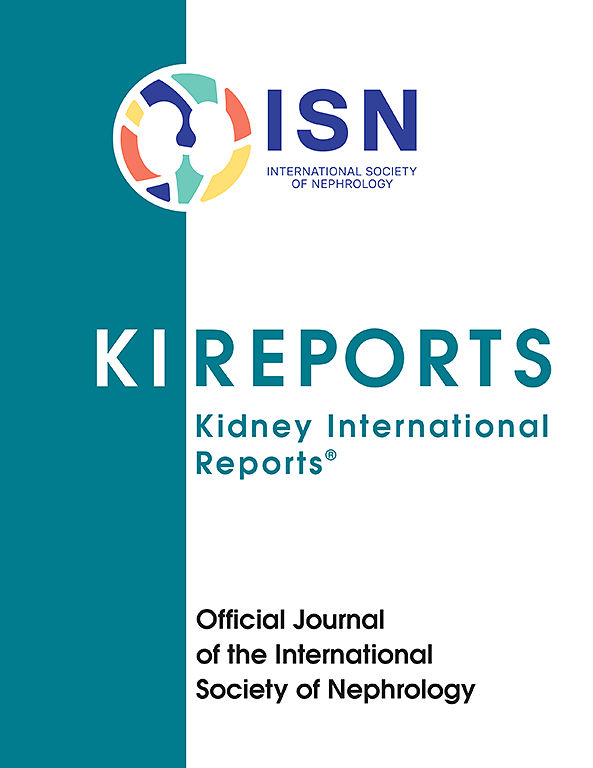Experiential Evidence of Systemic Racism for Indigenous Peoples Navigating Transplantation in Canada
IF 5.7
2区 医学
Q1 UROLOGY & NEPHROLOGY
引用次数: 0
Abstract
Introduction
Despite previous data stating that Indigenous patients with kidney failure are 66% less likely to receive a kidney transplant compared with White Canadians, there is a very limited understanding of the barriers and challenges experienced and described by Indigenous Peoples when accessing kidney transplantation. The aim of this study was to describe the perspectives and experiences of Indigenous kidney transplant candidates and recipients, living kidney donors, and Elders on access to kidney transplantation in British Columbia, Canada in the hopes of codeveloping and implementing health services interventions to address systemic barriers to transplantation.
Methods
Semistructured interviews were conducted with 19 participants and 4 focus groups were conducted with 18 participants (n = 37). Transcripts were thematically analyzed.
Results
Five themes were identified as follows: (i) confronting uncertainty and risk, (ii) culture of giving, (iii) systemic racism and discrimination, (iv) navigating complexities of transplant and donation process, and (v) a lack of culturally safe care.
Conclusion
These findings highlight that Indigenous patients face potentially modifiable barriers that may be amenable to health system improvements, such as development of culturally safe patient education tools and Indigenous-specific navigation supports. Health services and policy interventions need to be explored and evaluated to begin to address inequities in access to transplantation.

加拿大原住民进行器官移植的系统性种族主义经验证据
尽管先前的数据表明,与加拿大白人相比,土著肾衰竭患者接受肾脏移植的可能性低66%,但人们对土著患者在接受肾脏移植时所经历和描述的障碍和挑战的了解非常有限。本研究的目的是描述加拿大不列颠哥伦比亚省土著肾移植候选人和受体、活体肾供体和老年人获得肾移植的观点和经验,希望共同制定和实施卫生服务干预措施,以解决移植的系统性障碍。方法采用半结构化访谈法对19名被试进行访谈,并采用4个焦点小组对18名被试进行访谈(n = 37)。对转录本进行主题分析。结果确定了以下五个主题:(i)面对不确定性和风险,(ii)捐赠文化,(iii)系统性种族主义和歧视,(iv)应对移植和捐赠过程的复杂性,以及(v)缺乏文化安全护理。结论:这些研究结果表明,土著患者面临着潜在的可改变的障碍,这些障碍可能符合卫生系统的改进,例如开发文化安全的患者教育工具和土著特有的导航支持。需要探索和评估卫生服务和政策干预措施,以开始解决获得移植方面的不平等问题。
本文章由计算机程序翻译,如有差异,请以英文原文为准。
求助全文
约1分钟内获得全文
求助全文
来源期刊

Kidney International Reports
Medicine-Nephrology
CiteScore
7.70
自引率
3.30%
发文量
1578
审稿时长
8 weeks
期刊介绍:
Kidney International Reports, an official journal of the International Society of Nephrology, is a peer-reviewed, open access journal devoted to the publication of leading research and developments related to kidney disease. With the primary aim of contributing to improved care of patients with kidney disease, the journal will publish original clinical and select translational articles and educational content related to the pathogenesis, evaluation and management of acute and chronic kidney disease, end stage renal disease (including transplantation), acid-base, fluid and electrolyte disturbances and hypertension. Of particular interest are submissions related to clinical trials, epidemiology, systematic reviews (including meta-analyses) and outcomes research. The journal will also provide a platform for wider dissemination of national and regional guidelines as well as consensus meeting reports.
 求助内容:
求助内容: 应助结果提醒方式:
应助结果提醒方式:


